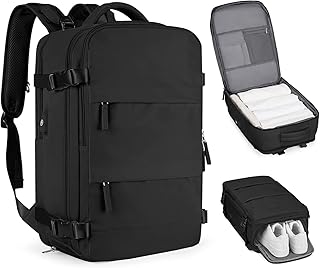Airline cabin bag allowances have become a source of confusion and frustration for many travelers in recent years. With airlines like Ryanair, easyJet, and Wizz Air no longer including cabin bags in the cost of standard tickets, passengers are left navigating varying rules and charges for carry-on luggage. In 2025, understanding the dimensions and weight limits set by different airlines is crucial to avoid unexpected fees and ensure a smooth travel experience.
For instance, Ryanair’s cabin bag policy is among the most stringent, offering only a small underseat bag with its Basic fare. Opting for the Regular fare provides an additional 10kg case for the overhead locker, but at an added cost. In contrast, British Airways stands out with a more generous allowance that includes a larger cabin bag and a second small bag, making it a preferred choice for many travelers despite potentially higher upfront fares.
EasyJet’s cabin bag rules require passengers to pay extra for anything beyond a small underseat bag, with costs varying based on the route and ticket type. While the airline offers a Standard Plus fare with added perks like speedy boarding, savvy travelers may find better deals by selecting a Standard fare and manually adding cabin bags. Jet2, recognized as a top short-haul airline, provides a competitive baggage policy that includes a personal piece of hand luggage and a cabin bag even on its Economy Basic fare.
Wizz Air, on the other hand, follows a more frugal approach similar to Ryanair, allowing only a small underseat bag with its basic fare. Passengers can upgrade to Wizz Priority for a larger cabin bag, but the additional cost varies depending on the booking method. Despite the allure of budget airlines like easyJet and Wizz Air for their base fares, the inclusion of cabin bags can significantly impact the overall ticket price, making carriers like British Airways and Jet2 more cost-effective options for many travelers.
When planning for a trip, understanding the cabin bag allowances of different airlines is essential to avoid surprises at check-in. While some carriers may appear cheaper upfront, additional charges for cabin bags can quickly add up, potentially making flights with more inclusive policies a better overall value. By being aware of the dimensions, weight limits, and potential extra costs associated with cabin bags, passengers can make informed decisions that optimize both convenience and savings during their travels.
As airlines continue to adjust their cabin bag policies to balance passenger convenience and operational efficiency, staying informed about these regulations is key for a hassle-free journey. Whether it’s maximizing the use of cabin luggage or selecting the most cost-effective fare options, travelers can benefit from a clear understanding of airline policies to streamline their travel experience and minimize unexpected expenses.
📰 Related Articles
- Deciphering Airline Checked Luggage Rules: A Traveler’s Essential Guide
- Tween Gift Guide 2025: Trendy & Tech Presents for Every Interest
- Traveler’s Baggage Mishap Highlights Airline Packing Regulations
- Top Electronic Keyboards Guide 2025: From Beginner to Pro
- Top Electric Scooters for Kids in 2025: A Comprehensive Guide






